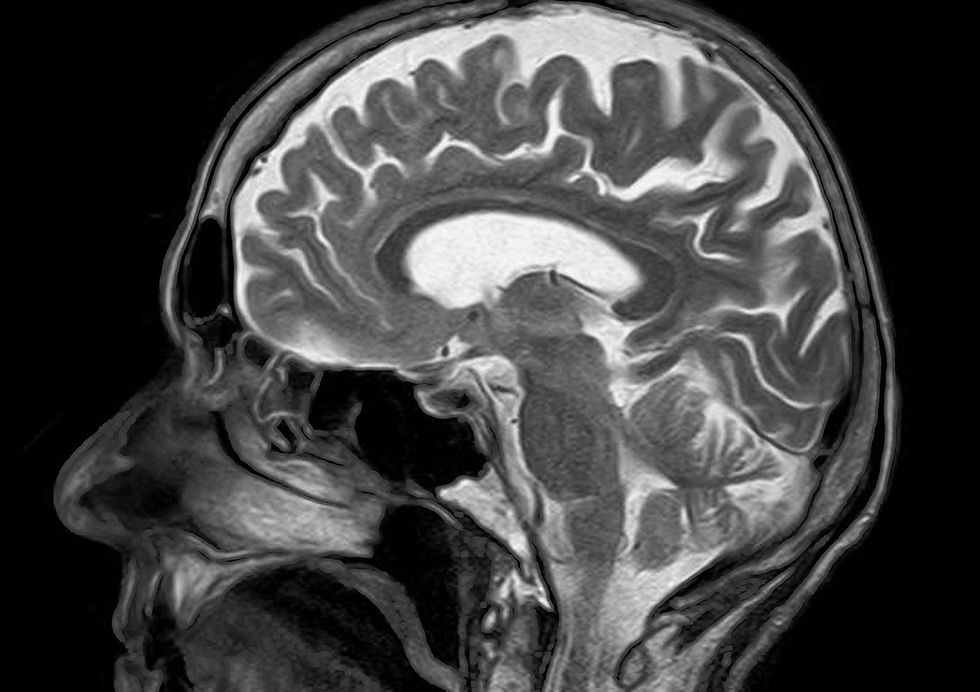Science & Tech
Catherine Shuttleworth
May 19, 2023

The potential for EEG devices lies far beyond monitoring brain activity
iStock
Scientists have revealed they had found a way to combine the technology of brain scans and artificial intelligence to transcribe “the gist” of people’s thoughts.
Alex Huth, an assistant professor of neuroscience and computing science at the University of Texas at Austin, and a co-author on the new study published in Nature Neuroscience, said that ‘this is a real leap forward.’
The study was led by Huth and Jerry Tang, a doctoral student in computer science.
The main development from this study is that it’s non-invasive. This means that subjects do not require surgical implants. Instead, brain activity is measured using a functional magnetic resonance imaging (fMRI) scanner.
Sign up to our free Indy100 weekly newsletter
In the study, individuals listened to hours of podcasts in the scanner. Then, given the participant’s consent to have their thoughts decoded, they listened to a new story and the machine-generated corresponding texts from brain activity.
It’s not a word-for-word transcript. For example, when an individual heard the phrase ‘I don’t have my driver’s licence yet’, the model decoded the individual’s thoughts to read as ‘she has not even started to learn to drive yet.’
Even when participants thought up their own stories, the machine was able to decode their thoughts still.
Tang acknowledged that the advancements made in the study had the potential for negative aftermath. Tang said, ‘we take very seriously the concerns that it could be used for bad purposes and have worked to avoid that.’
They ran tests that highlighted that unless the machine had been trained on an individual’s particular brain activity, it could not decode its thoughts. An individual had to allow for the machine to train their brain activity over a long period of time inside a fMRI scanner for it to work.

Researchers also found that it was easy to ‘sabotage’ the machine. Three participants were told to tell a different story in their mind, or count by seven, while listening to one of the podcasts.
The study highlights even more development with artificial intelligence, after the popularity of OpenAI’s Chat GPT has sparked debate around the potential of AI.
Have your say in our news democracy. Click the upvote icon at the top of the page to help raise this article through the indy100 rankings.
Top 100
The Conversation (0)













